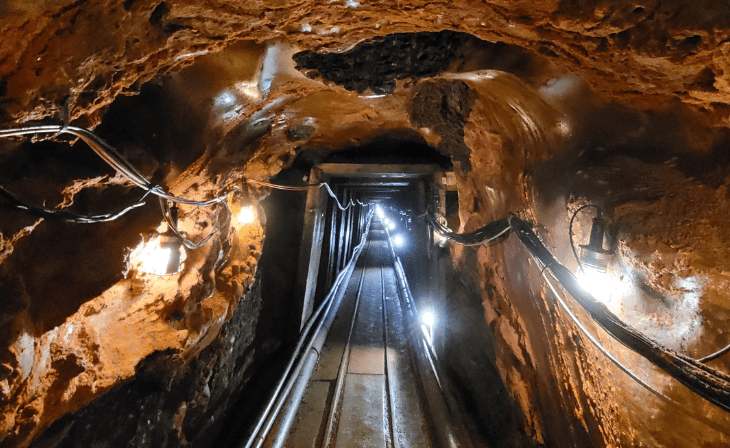A team of experts from the Chair of Energy Geosciences led by David Misch, in collaboration with geologists from Salinen Austria AG, is researching innovative ways of storing hydrogen in Austrian salt caverns as part of the FFG project “H2Cavern”. The project could make an important contribution to a sustainable hydrogen supply for domestic industry.
Salt caverns as an efficient storage solution
Salt caverns are artificially created cavities in salt rock through mining. They enable very fast injection and withdrawal rates and are therefore particularly suitable for meeting short-term storage requirements. They are also considered to be particularly safe due to their geological properties.
Cavern storage in homogeneous salt bodies is an established process worldwide, particularly for storing natural gas. This approach is already being used successfully for hydrogen storage in some pilot projects. However, the conditions in alpine-type salt deposits – such as in the eastern Alpine Haselgebirge formation – pose a particular challenge and make the implementation of such storage projects more difficult.
Scientific studies for a forward-looking concept
Misch’s team plans to explore all available mining data for the implementation of the project. In addition, laboratory experiments and numerical models will be used to assess the long-term risk of these storage projects. In particular, experiments on the interaction of reactive rock components with hydrogen should provide valuable insights into the chemical and mechanical effects of gas storage and assess the stability of the caverns over many storage cycles.
In summary, the “H2Cavern” research project aims to advance the development of one of the most promising hydrogen storage concepts for domestic players in the energy sector.
Contact
University Professor Dr. David Misch
Chair of Energy Geosciences
Mobile: +43 664 80898 6300
E-mail: david.misch(at)unileoben.ac.at
[Source: University of Leoben]









